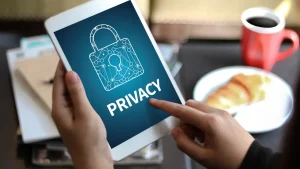Consumers across the country report confusing phone calls, letters, and texts tied to complex real estate ownership structures. When a collector or servicer invokes 2009 CUSA Community Owner LLC, the legal name alone can create anxiety and confusion. This in depth guide explains what that name usually represents, how debt collection should lawfully work, and exactly how to protect yourself from harassment while you safeguard credit, privacy, and peace of mind. You will learn how to verify any claim, force communication into writing, dispute errors, and take practical steps that actually make the calls stop.
What This Name Usually Represents
Large apartment owners and real estate investment groups often place individual properties or portfolios into separate limited liability companies. Those entities hold title, sign mortgages, and appear in records and notices. A dated name often signals when the entity was formed to support financing or ownership. When a disputed balance is placed for collection, an collection agency or law firm may cite the underlying owner company to describe the account. If you see 2009 CUSA Community Owner LLC in a letter or hear it in a voicemail, treat the matter like any other collection attempt. You do not need to master corporate history to stay safe. You only need to require clear written proof, review it carefully, and respond on your timeline.
Is It A Collector Or A Property Owner

The name itself typically points to an ownership company rather than a call center. Collection work is usually performed by third party agencies or by law firms engaged by a creditor or by a debt buyer. Those collectors sometimes repeat an owner name to identify the account. Even if a caller repeats 2009 CUSA Community Owner LLC many times, your strategy is the same. Ask for the company’s full legal name, mailing address, and a telephone number. Ask for the original creditor’s name, the claimed amount, and an itemized accounting. Then require a written validation notice and verify the business independently before you make any decision about payment.
Why You Might Be Hearing From A Collector
There are several common paths that lead to collection. A final billing statement for lease related charges might not have been received or paid. Utility pass throughs, damage claims, or court costs after an eviction case can be placed for collection. Older accounts can be sold to a debt buyer that then hires an agency. Records move between companies as portfolios are sold or serviced. As files move, you may see an ownership label like 2009 CUSA Community Owner LLC on letters or in validation materials. The label describes the origin of the obligation, but it does not reduce or change your rights as a consumer.
Your Rights Under The FDCPA
The Fair Debt Collection Practices Act protects you when a third party collector pursues a personal debt. The law forbids harassment and abuse. It bans false or misleading statements. It restricts calls at inconvenient times or places. It limits third party contact and protects your privacy. It requires a written validation notice soon after the first contact. If you dispute the debt in writing, collection must pause until verification is mailed to you. None of these rights disappear because a letter mentions 2009 CUSA Community Owner LLC. Your rights attach to the way the debt is collected and they apply no matter which owner name appears in the background.
Learn more about: Robocalls & Telemarketing Harassment
Signs Of Harassment You Should Not Ignore

Harassment is sometimes obvious and sometimes subtle. Repeated ringing with the intent to annoy, profanity, threats of arrest, or threats to contact people you know are obvious. Subtle harassment includes pressure to pay today, vague references to lawsuits that never arrive, refusal to provide a physical address, or scripts that rush you to read a card number over the phone. If an agent mentions 2009 CUSA Community Owner LLC while using any of these tactics, do not debate over the phone. Document the call and pivot to your written rights. Your goal is to create a calm, verifiable paper trail.
Immediate Actions That Put You Back In Control
Start a call log today and keep it current. Write the date, time, the phone number that called, the representative’s name, and a short summary of what was said. Save voicemails. Save screenshots of texts. Keep copies of every letter and even the envelopes they came in, because postmarks can matter. Ask for the validation notice if you have not received it. Dispute in writing within thirty days of the notice and request verification including an itemized accounting and documents that show the collector’s authority. Move contact to mail only so you can respond carefully and on your schedule. If calls continue, send a short cease communication letter. These steps work whether the paperwork references 2009 CUSA Community Owner LLC or another entity.
Handling Robocalls And Unwanted Texts

Many consumers receive prerecorded calls or automated texts. You can revoke consent in plain language. Write a short letter that lists your numbers and states that you do not consent to any automatic dialed or prerecorded calls or texts. Date the letter and keep a copy. After that, capture screenshots of any call or text that arrives. A clear sequence of revocation followed by continued contact can persuade a collector to scrub your number and it creates strong evidence if unlawful contact continues. This approach is effective even if the collector repeatedly references 2009 CUSA Community Owner LLC during calls or messages.
Credit Reporting And How To Correct Errors
A collection account can appear on your credit reports. Begin by validating the debt through the debt collector. Then check each bureau for accuracy. If a tradeline is wrong or incomplete, dispute it with each bureau that lists it. Attach copies of your letters and any itemization you received. Ask for deletion or correction when information cannot be verified. Keep every confirmation. The goal is accuracy and documentation, whether the tradeline refers to 2009 CUSA Community Owner LLC or to another owner.
If You Receive A Lawsuit
Some collection matters result in lawsuits. Do not ignore court papers. Read the summons and calendar your response deadline. File an answer to prevent a default judgment. In your answer, deny allegations you dispute and require proof of ownership, balance accuracy, and proper notice. Bring your file to a consumer rights attorney who can evaluate defenses and any counterclaims. A suit that cites 2009 CUSA Community Owner LLC still must follow state rules for service, pleadings, and evidence. A timely answer preserves your leverage and keeps the conversation in front of a judge rather than a call center.
Negotiation When The Debt Is Valid And You Want Closure

Sometimes the account is valid and you want to resolve it. Validate first so you know who owns the balance and how the amount was calculated. Ask for a written payoff or settlement letter that states the exact amount, any due dates, what will happen to any remainder, and how credit reporting will read after payment. Never grant automatic withdrawals. Use a traceable one time payment method that you control. Keep the final confirmation forever. Even if the documents mention 2009 CUSA Community Owner LLC, the written agreement you sign controls the outcome.
How Documentation Wins Real Cases
Documentation is the difference between a stressful loop of calls and a controlled process that follows the law. Your notes prove call frequency. Your saved voicemails and texts prove content. Your letters and receipts prove what you requested and when you requested it. With a clean paper trail, regulators and attorneys can evaluate violations quickly. Courts rely on documents rather than memories. The more organized your file, the faster a matter connected to 2009 CUSA Community Owner LLC moves toward a rational resolution and away from daily stress.
Common Harassment Tactics And Your Best Responses
Collectors sometimes rely on fear and speed. They pressure you to pay today. They hint at lawsuits without providing facts. They call relatives or workplaces. They demand sensitive information. Respond with calm and repetition. Require everything in writing. State your preferences for mail only communication. Dispute in writing and ask for verification. If a caller says the account is linked to this company, confirm that detail in your log and repeat your written requests. You are not obligated to discuss the debt by phone. Your written rights are powerful.
Special Considerations For Former Residents
Former residents sometimes face final account claims after moving out. Settlement paperwork, itemization of charges, and proof of ownership matter. Ask for the final ledger, photographs, invoices, credits, and deposits applied. Ask for the name and address of the current owner of the debt and confirm that the collector is authorized to act. If the letters mention 2009 CUSA Community Owner LLC, do not assume that the entity itself is the caller. The caller is a separate agency or law firm. Your requests should still be addressed to the entity that contacted you, and your records should clearly show that you demanded itemization and verification.
Protecting Your Privacy At Work And At Home

You have the right to stop calls to places that are inconvenient. If work calls are not allowed, say so clearly and put it in writing. If calls to family members are occurring, note each contact and consider a complaint. If a collector leaves messages that reveal debt details to someone other than you, document that disclosure. These events can indicate unlawful behavior. They also support a request for intervention when a matter referencing 2009 CUSA Community Owner LLC refuses to cool down.
Building A Clean File For Regulators
If reasonable requests are ignored or if harassment continues, you can elevate the matter. A clear complaint includes dates, times, phone numbers, recordings where lawful, copies of letters, envelopes, and screenshots. It names the collector and states the exact language you used to request validation or to revoke consent. If the letters or voicemails invoke 2009 CUSA Community Owner LLC, include that phrase so a reviewer understands the context. Good documentation often leads to quick contact from the company with a more careful response.
How A Consumer Lawyer Can Help
A consumer rights attorney can shift the conversation in days. Counsel will demand validation, track violations, and move all exchanges into writing. Counsel will prepare cease communication notices that actually end repetitive calling. Counsel will negotiate settlements when closure is the goal and file claims when the collector breaks the law. If you want help now, call CONSUMER RIGHTS LAW FIRM, PLLC BBB Profile at 📞 877) 700 5790. A short conversation can confirm whether your facts support a claim, whether settlement makes sense, and how to handle a file that repeatedly references 2009 CUSA Community Owner LLC.
Success Stories
“I would highly recommend the Consumer Rights Law Firm to anybody that has been harassed! They were very professional and straightforward about my rights”.
“I had the pleasure of dealing with Consumer Rights Law Firm PLLC on 2 different occasions the staff were very courteous and helpful, and they were familiar with the Collection Agency’s in question and the harassment calls stop, I was even compensated. I would recommend this company to anyone going thru this type of harassment a very satisfied customer”.
“Because of a lie from a third-party debt collector that threatened me financially I nearly made the mistake of paying the debt collector money I couldn’t afford. The people here were friendly, knowledgeable and settled my case quickly. THANK YOU SO MUCH!!”
FAQs
1. Who is 2009 CUSA Community Owner LLC and why is the name used in collection❓
2009 CUSA Community Owner LLC is typically an ownership entity connected to real estate portfolios. Collectors may reference the company name to identify a disputed account, even though third party agencies or law firms usually handle the collection.
2. Why might I be contacted about a balance linked to 2009 CUSA Community Owner LLC❓
You might hear from a collector due to unpaid final bills, utility charges, move-out fees, eviction-related costs, or accounts sold to debt buyers. Records can pass between companies, but no matter the label, your consumer rights remain fully protected under federal law.
3. How can I verify that a collector claiming to represent 2009 CUSA Community Owner LLC is legitimate❓
Ask for the full legal business name, address, phone number, original creditor, and itemized balance. Request a written validation notice and independently confirm business information before discussing payment. Never allow urgency to replace proper verification.
4. What rights protect me when collectors pursue debts tied to 2009 CUSA Community Owner LLC❓
The FDCPA protects against harassment, false statements, abusive conduct, inconvenient calls, and unauthorized disclosure. You must receive a written notice and collection must pause if you dispute in writing. These rights apply no matter which owner name is referenced.
5. What are common signs of harassment I should not ignore❓
Frequent calls, pressure to pay immediately, threats of lawsuits, refusal to provide an address, or messages revealing debt details can indicate harassment. If a collector references 2009 CUSA Community Owner LLC while doing this, document everything in writing immediately.
6. How should I start documenting contact from collectors tied to 2009 CUSA Community Owner LLC❓
Begin a call log noting date, time, caller ID, representative name, and summary of every contact. Save letters, envelopes, voicemails, screenshots, and texts. Documentation gives you leverage, supports disputes, and allows attorneys and regulators to understand violations clearly.
7. How can I stop robocalls and unwanted texts from collectors❓
Write a letter listing your phone numbers and revoking consent to autodialed calls or texts. Keep a dated copy and then record any further contact. If contact continues after revocation, you create strong evidence supporting enforcement of your rights and stopping continued harassment.
8. What should I do if a collection account linked to 2009 CUSA Community Owner LLC appears on my credit report❓
Validate the debt first, then check each credit bureau for accuracy. If information is incomplete or incorrect, dispute with each bureau, attach supporting documents, and request correction or removal when verification fails. Keep copies of every letter and confirmation.
9. What should I do if I am sued on a balance tied to 2009 CUSA Community Owner LLC❓
Do not ignore legal papers. Read the summons, calendar deadlines, and file an answer to avoid a default judgment. Require proof of ownership, balance accuracy, and proper notice. A consumer attorney can evaluate defenses, counterclaims, and ensure your rights are preserved.
10. How can Consumer Rights Law Firm PLLC assist with 2009 CUSA Community Owner LLC❓
Consumer Rights Law Firm PLLC can demand validation, push communication into writing, challenge harassment, track violations, stop unwanted calls, negotiate settlements, defend lawsuits, and pursue damages when collectors break the law, giving you relief, leverage, and legal protection.
Action Checklist
- 👉 Verify the identity of the caller and request the validation notice.
- 👉 Create a call log and save every voicemail, text screenshot, letter, and envelope.
- 👉 Dispute in writing within thirty days of the notice and ask for verification.
- 👉 Move contact to mail only and send a cease communication letter if calls continue.
- 👉 Revoke consent for automated calls and texts in writing and keep proof.
- 👉 Avoid automatic withdrawals and insist on a written settlement letter before paying.
- 👉 Dispute inaccurate credit reporting with each bureau and attach your documents.
- 👉 File an answer if you receive a lawsuit and consult a consumer rights attorney.
- 👉 Keep your file organized, especially when letters or calls reference 2009 CUSA Community Owner LLC.
Final Word
Collection pressure thrives on confusion and speed. Slow the process, move everything into writing, and require proof. Hold collectors to the rules of the FDCPA. Whether a letter or voicemail mentions 2009 CUSA Community Owner LLC or not, your rights remain the same and they are powerful. With steady steps, careful documentation, and clear boundaries, you can stop the calls, correct errors, and move toward a durable resolution that protects your time, your credit, and your peace of mind. If you want a professional to take the lead, one conversation can set your plan and quiet the noise.







